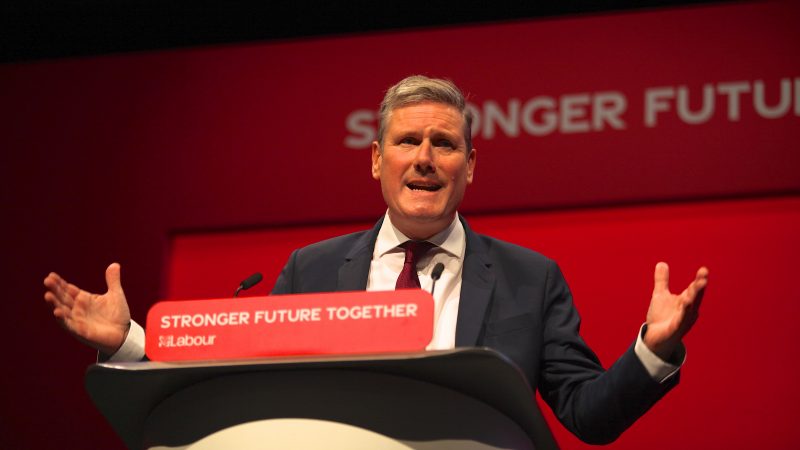
Keir Starmer will launch five “missions” that will form the “backbone” of Labour’s election manifesto and are intended to address some of the most pressing challenges facing the country.
In a speech in Manchester on Thursday, the Labour leader will launch the missions – described by Labour as the “key pillars” of a Starmer-led government – each of which will come with “clear, measurable outcomes”.
The party will announce the first measurable goal – on economic growth – on Thursday and said it would set out “over the coming months” measurable ambitions for each mission and “some of the first tangible steps to achieving them”.
According to the Times, the missions will focus on five themes – the economy, the NHS, crime, climate change and education – and Labour is expected to outline two more missions before the local elections in May.
In his new year speech last month, Starmer criticised the “short-term mindset” of Westminster, declaring: “I call it ‘sticking-plaster politics’. And in a kind of last-minute frenzy, it sometimes delivers relief. But the long-term cure – that always eludes us. And it’s at the heart of all the problems we see across our country right now.”
He announced Labour’s plan to “modernise central government” and ensure it is “driven by clear, measurable objectives” or “national missions”, which he said “will be the driving force of the next Labour government” and “will [push] us on to a better future and a decade of national renewal”.
The party said its missions would be “unashamedly long term”, and the Labour leader is expected to declare in his speech on Thursday that each mission “will be laser-targeted on the complex problems which drive our crises”.
Starmer will tell attendees: “The more I delve into these challenges, the more I can see things that are simply not working. Things that could be sped up, joined up, given direction, made to work better.
“This is at the core of my politics. Government can prevent problems, as well as fix them. Can shape markets rather than serving them. Can lead a collective national effort on growth and innovation. But without reforming the role of government – none of that will happen.
“Equally, I’m not concerned about whether investment or expertise comes from the public or private sector – I just want to get the job done. And I mean that – we have to get it done.
“With missions comes greater stability and certainty. Instead of a government chopping and changing all the time, blowing with the wind, the missions will be anchor points to show clearly the direction of travel.”
Starmer has warned that a Labour government will not be able to spend its way out of the “mess” created by the government. Announcing the national missions in his new year speech, he said: “None of this should be taken as code for Labour getting its big government chequebook out.
“Of course, investment is required – I can see the damage the Tories have done to our public services as plainly as anyone else. But we won’t be able to spend our way out of their mess – it’s not as simple as that.”
Rishi Sunak set out five key priorities for his government in his own new year speech, specifically halving inflation over the next year, growing the economy, ensuring national debt is falling, reducing NHS waiting lists and passing new laws to stop small boats crossing the Channel.
The Prime Minister described the commitments as the “people’s priorities”, adding: “I ask you to judge us on the effort that we put in and the results that we achieve.”
Responding to Sunak’s speech, Bridget Phillipson said: “What we saw today from Rishi Sunak was a total failure to set out how he intends to build a better Britain. There was no plan behind any of that.”
The Shadow Education Secretary said: “This was just completely out of touch, not addressing the real problems that we see right now as a country that his government, after 13 years, have been responsible for creating.”




More from LabourList
‘The Sherriff of Wild Westminster: what must change in elections bill’
‘The hope that kills you’: Reflections from the final day in Gorton and Denton
MPs, union leaders and organisations react to ‘bruising’ Gorton and Denton result